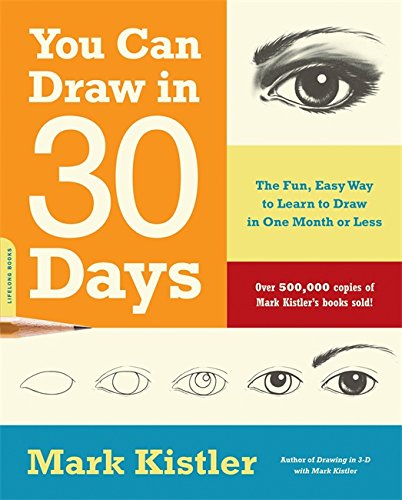
- Growing up doesn't mean your life has to be all about work.
- Studies have shown that playing and being creative has numerous health benefits for adults of all ages.
- Simple exercises like drawing, finishing a puzzle, or taking breaks outdoors can have a positive impact on your life.
Peter Pan had the right idea: growing up is overrated. As adults we often forget to stop and have fun in between paying bills and being productive members of society. We're often stressed about our lives and the world around us, and after a while that mental anguish starts to take a toll on our bodies. There have been countless studies on the power of play and of mental and physical exercise. Here are some "childish" activities you should be doing to strengthen your mind, distract you from work, and keep you feeling young at heart.
1. Building LEGO kits is good for the mind.
With popular shows like LEGO Masters and films including "Beyond the Brick: A LEGO Brickumentary," it's clear that building with plastic bricks is not just a kids' sport. The popular interlocking pieces have been used in the past to reduce anxiety and stress, to inspire and promote creativity in the workplace, and to improve dexterity and coordination for patients with dementia. LEGO building is also a just fun way to spend a few hours alone or with family and friends!
2. Get back into jumping rope.
In addition to being a great tool for calorie-burning cardio workouts, jump ropes help with coordination, can be more efficient for heart health than jogging, improve bone density, and decrease the risk of foot and ankle injuries. When shopping for one, make sure the handles are comfortable and that the length is adjustable (or specific to your height).
3. Draw for fun.
Researchers, teachers, and artists are starting to realize that drawing is more than an art form. Studies have shown that doodling increases memory and helps with focus, while more involved drawing exercises enhance one's understanding of concepts and objects. With this How-To book, you'll be upgrading those stick figures and reaping the benefits that drawing has to offer in no time.
4. Eat lunch outside for a change.
According to the New York Times, 62 percent of professionals say they spend their lunch break eating at their desk. Taking a break away from a work environment gives you the chance to do just that: take a break. Sometimes a short walk and some fresh air is exactly what you need to feel creative and energized to make it through the day. Plastic bags are bad for the environment, and paper bags will make you look like a 3rd grader, but this lightweight neoprene bag is perfect for transporting for homemade meals to a park bench or somewhere your computer isn't. The bag keeps cold things cold and warm things warm for up to 4 hours, stores flat, is BPA free, and is also machine washable.
5. Get back into video games.
More than 164 million Americans play video games on their phones, computers, or gaming consoles. Hundreds of millions more dabble in gaming around the world. In addition to being a fun leisure activity, video games have been shown to have benefits for players of all ages. From increased gray matter in the hippocampus of people between the ages of 55 and 75, to improved performance on recognition memory tasks and a boost in keyboard proficiency, the diversity in video games today has created a vast library of useful tools that anyone can take advantage of.
A recent obsession among gamers is Animal Crossing: New Horizons for the Nintendo Switch. Build a community, collect materials, hang with cute creatures...this game has it all.
6. Finish a big, difficult jigsaw puzzle.
A 2018 study published in Frontiers in Aging Neuroscience found that solving jigsaw puzzles "strongly engages multiple cognitive abilities," and that when practiced long term is a "potential protective factor for cognitive aging." The options are nearly endless when it comes to themes, shapes, and the number of pieces in a given puzzle, but we think this round puzzle of the Moon is both challenging and beautiful. When you're done, you can glue it and hang it on a wall, or take it apart and start over again.
7. Go for more bike rides.
The benefits of cycling are almost too many to list, but here are a few according to Harvard Medical, Cycling Weekly, and Bicycling.com: save on carbon emissions, increase muscle strength and joint mobility, decrease stress and body fat, explore your surroundings in a new way, and save money on fuel costs and maintenance. Oh yeah, and it can be a lot of fun!
8. Fly a kite
It may seem like just another lazy day activity, but keeping that string and wind-catching material afloat can do a lot for your body and mind. According to Dr. Jeannie Kenkare of PhysicianOne Urgent Care, kite flying is great for eye stimulation, neck/shoulder exercise, stress relief, filling your lungs with fresh air, and reconnecting you with nature. This one is of a massive bird, because you also want to look cool doing it.
9. Keep a diary or journal.
Journaling (or mature diary keeping) is a great way to track the progress of life goals and daily moods, to manage stress and anxiety, and to generally be more reflective in order to gain new perspectives. Journaling also helps strengthen your organizational skills and can be used as a meditative practice.
10. Color inside (or outside) the lines.
Published in Art Therapy: Journal of the American Art Therapy Association, a 2005 study involving 84 college students found that coloring a plaid form and complex geometric patterns (mandalas) reduced stress levels by inducing a "meditative state." The study also found that these exercises were more effective stress reducers than free-form coloring on a blank page. Coloring also benefits older adults by improving motor function and vision.
When you buy something through a link in this article Big Think earns a small affiliate commission. Thank you for supporting our team's work.













0 Comments